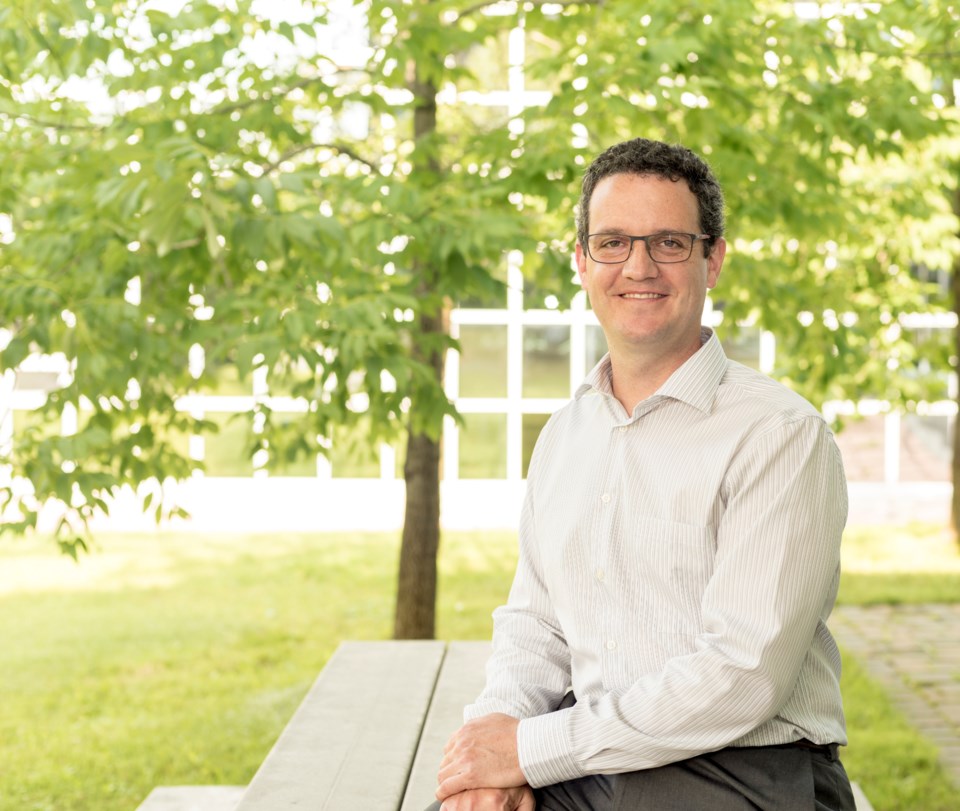Sudbury immunologist Dr. Alain Simard believes there are far more people in the Sudbury area infected with the coronavirus than we know about. He said the number could be as many as 10 times more than the official numbers.
Simard, an associate professor in the medical sciences division at the Northern Ontario School of Medicine, was commenting this week on the latest spike in COVID-19 cases reported by Public Health Sudbury and Districts, which revealed on Wednesday that 10 new confirmed cases were reported. The health unit numbers also revealed that over a 10-day period, there were 22 new confirmed cases.
Simard said most of those cases were tracked by the health unit and were the result of a person coming into contact with a traveller. He said this included the eight new cases reported on Monday, July 27.
"And then two days later, the 10 news cases came out and a good portion of them were all with unknown exposure. To me, that's where things become a lot more concerning," said Simard.
"Basically it means the virus is again moving around in our community and we don't know where it's from. It could be anyone. And that's when we could lose control of things."
When asked if this might mean a second wave is on the way, Simard said the whole idea of a second wave is debatable. He quoted a World Health Organization report indicating that the first wave has not yet disappeared in most cases.
Simard said it could be argued the virus disappeared locally because there were no reported cases in Sudbury in the last week of June or the first few weeks of July.
"But you have to ask yourself did it really disappear? Because research so far shows that for every symptomatic person there are potentially ten more that are infected that are asymptomatic. And that number 10 might be a bit exaggerated for our area, but in some parts of the world that's what it is," said Simard.
He said he believes there is a good chance the virus is still in Sudbury at a low level, but the conventional testing procedures did not pick it up.
"Most of the tests are going to be people that might not be feeling well; they think, ‘Oh, I might have COVID,’ so they go get tested. We focus a lot more on those and select people who are at risk and those will be tested on a routine basis."
Simard used himself as an example, saying he has not been tested because he doesn't think he has had a need to.
"It is possible that people who were infected have no symptoms, so [they see] no reason to get tested. Therefore, we think that the virus is not in the city. So it is possible that the virus was around at very low levels throughout this time. We don't know," he said.
Simard also commented on the study released last week by Canadian Blood Services that revealed less than one per cent of Canadians were exposed to the virus and had antibodies in their blood samples indicating they were infected. Simard said even though the exposure number was less than one per cent, the number was still much higher than the total number of officially tested and reported COVID-19 cases in Canada.
"We've known for quite a while there are a lot of asymptomatic cases and that the numbers that they're reporting are actually under-estimated. They're lower than what the reality is and it's all because of the fact that a lot of infections remain asymptomatic," said Simard.
He said the lull that occured, with no cases reported in early July, could have created a false sense of security for people in Sudbury. Simard said there are also a set number of people who will not observe social circles, who will not do social distancing and who will not wear face masks.
"And the whole time they could be carrying it and transmitting it to others. They just don't know about it," he said.
Simard said people have to take the pandemic more seriously, but he said he doesn't think the government should re-introduce restrictions.
"I think they will consider it. I don't know if they will do it. There are a few examples of where we should take a closer look," he said.
"Personally, I don't think we have to go back to a complete lockdown."
He said there are good physical health and mental health reasons for avoiding a lockdown, such as for people needing surgeries and for those who have difficulty being cooped up for long periods.
"Now we have a lot more knowledge and we have tools to prevent the spread. You know, keep your two-metre distance and wear a mask. And know we know the mask makes a very big difference,” he said.
“As long as people observe these measures we should be able to control this."



